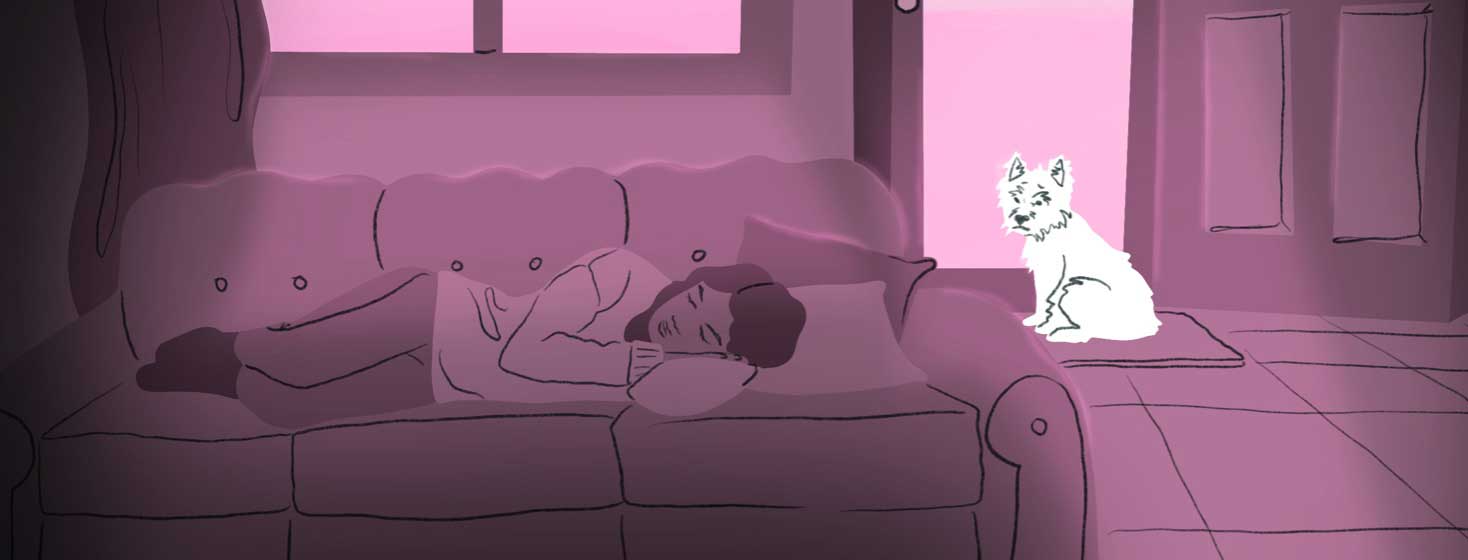Managing Pets After Surgery
Our furry, feathered, scaled, and other pet friends can provide comfort, support, and companionship that helps us manage the pain and emotional strain of the chronic illness. But what happens when you have major surgery, like an excision or a hysterectomy, and need someone to take care of them while you recover?
If you’re partnered, and you’re usually the one to feed, walk, and clean up after your pet, ask your partner to pick up the slack for at least the first week and potentially longer if your doctor asks you not to bend over for several weeks after surgery.
Caring for your pet after having surgery
For the single babes out there, you have several options.
First, see if you could set up a pet care chain similar to a meal train. Have one friend or family member sign up for each day of the week for the first couple of weeks after your surgery to help you with the daily tasks related to your pet.
If your pet is a dog or cat and is solely on wet food, ask your vet if you can switch to dry food for at least one meal to cut down on the number of times you need to feed your pet.
If you can include dry food when your friend or family member visits, they can give the wet food and fill the dry food at the same time. If you get a grabber tool, that may help you reach the food and water dishes without bending over.
If you have pets like a bird or rabbit that need some social time, make sure you ask the helper to spend some time with your pet.
Another option is to look into boarding your pet for several days during the most intense part of your recovery. Veterinary clinics and kennels can board a variety of animals.
You could also search online for someone you could pay to watch your pet using a trusted task service or even by posting in your Facebook groups, on Craigslist, on your local online neighborhood board, or through work listservs. Is there a neighborhood kid you’d trust to help you for a few days?
Preparing your home for your pet post-surgery
The next step is organizing your house to make sure your pet doesn’t surprise you underfoot, especially if you have a mammal that runs around. One option is to close the bedroom door for the first few days, but if you have a pet like me who generally likes to be in the same room as you, this may prove difficult, especially if you are alone and can’t keep them from scratching at the door to try to get in.
If you have time before surgery, you could start training your pet to use a particular bed in the same room. There are cat beds that can clip to the edge of a bed frame or suction to a window. What works for me is putting a blanket folded up into a square; no matter where I put it down, my cat Harvey will come and sit on it.
Right now, I have one on top of my printer on my desk, and sometimes he sits on it while I’m working. You can also put clothes you've worn in a spot where you want your pet to sleep. They'll be attracted to your scent and might find this a relaxing place to rest.
After my first two surgeries, I had to work to keep my previous cat from lying on my stomach, one of his favorite spots. Luckily my partner helped with that the first few days, and after a while, it wasn’t an issue. If you have a particularly cuddly pet, encourage them to lie next to you.
You could even train them with treats. This may be the most challenging suggestion of all. I know that many pets won’t change their ways so easily!
Take it easy
Finally, think of toys you can still use to play with your pet from bed. Maybe your cat’s favorite laser pointer or mouse on a stick could be included in the caddy you’ll have next to the bed for your medicine, heating pad, and water bottle.
Put a few of your dog’s favorite chew toys or bully sticks in the caddy. That way, you can still interact with minimal risk of creating more pain for you.
Don’t assume that you’ll be able to take care of your pet right after surgery, especially if you live alone. You will need an incredible amount of rest, and most activities related to pet care will be too intensive immediately after surgery.
Make sure you’ve got the proper help lined up, and that will be one less thing you have to think about as you recover.

Join the conversation